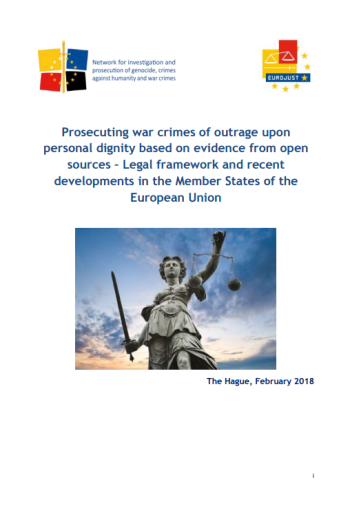
This report provides an overview of the legal framework of the crime of outrage upon personal dignity and presents recent war crimes cases, which are examples of cases in which perpetrators of war crimes were prosecuted for having committed outrages upon the personal dignity of their victims or having inflicted other forms of inhumane treatment upon their victims. The cases mentioned in this report have come before courts in Germany, Finland and Sweden. These cases have in common that the prosecution used electronically recorded footage of the events, which had been stored on smartphones or disseminated through social media (e.g. Facebook, YouTube). Migrants and asylum seekers, who may have participated to the hostilities taking place in Iraq and Syria, as well as returning foreign fighters, often possess smartphones and use social media. Moreover, the armed conflicts in Iraq and Syria are civil conflicts, highly documented in social media. The data that is collected from publicly available sources and that 4 can be used in the context of a criminal investigation is usually referred to as Open Source Intelligence (OSINT). All the cases referred to in this report relied, at least partially, on the investigation of publicly available footage of the crimes charged or on commentary made online by the defendants about the crimes charged. The objective of this report is to highlight the importance of OSINT in the fight against impunity from core international crimes.
